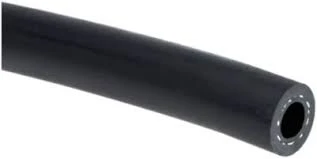Choosing the Right Fuel Hose for E85 Ethanol Blends and Compatibility Considerations
Nov . 01, 2024 11:58 Back to list
Choosing the Right Fuel Hose for E85 Ethanol Blends and Compatibility Considerations
Understanding E85 Compatible Fuel Hose A Comprehensive Guide
As the demand for alternative fuels grows, more vehicle owners are considering the use of E85 ethanol fuel. E85 is a blend of 85% ethanol and 15% gasoline, providing a cleaner-burning fuel option that can help reduce carbon emissions. However, one important consideration for anyone looking to use E85 is ensuring that their vehicle's fuel system is compatible with this high-ethanol content fuel, particularly the fuel hoses.
What is E85?
E85 is a flexible fuel that can be used in flexible-fuel vehicles (FFVs) designed to run on either E85 or conventional gasoline. The high ethanol content in E85 offers several advantages, including a reduction in greenhouse gas emissions and improved performance in some engines. However, ethanol can also be more corrosive than gasoline, which raises concerns about the materials used in the fuel delivery system.
The Role of Fuel Hoses
Fuel hoses are vital components in a vehicle's fuel system, responsible for transporting fuel from the tank to the engine. They must withstand various pressures, temperatures, and chemical interactions with different types of fuel. When using E85, it is crucial to select a fuel hose that is specifically designed or rated as compatible with ethanol-blended fuels.
Why E85 Compatible Fuel Hose Matters
1. Material Integrity Traditional fuel hoses made from rubber or certain plastics may degrade or swell when exposed to high levels of ethanol. E85 compatible hoses are typically constructed from materials like fluoropolymer or specially formulated synthetic rubber that resist the corrosive effects of ethanol.
e85 compatible fuel hose

2. Reduced Risk of Leaks Using non-compatible hoses can lead to cracks and failures that may cause fuel leaks. Fuel leaks pose significant safety risks, including fires and explosions, not to mention potential environmental damage. Choosing the right hoses significantly reduces these risks.
3. Performance and Efficiency E85 has different combustion properties compared to regular gasoline, affecting engine performance. A compatible fuel hose ensures the fuel can flow efficiently and maintains the integrity of the fuel system, which is critical for optimal engine operation.
4. Longevity and Durability Installing E85 compatible fuel hoses can extend the lifespan of your vehicle’s fuel system. While standard hoses might need frequent replacement when exposed to E85, compatible hoses minimize wear and tear, offering a longer functional life.
Selecting the Right Hose
When looking for E85 compatible fuel hoses, it’s essential to check for specific certifications or approvals from manufacturers indicating that the hose meets required standards for ethanol compatibility. Look for hoses labeled with ratings for E85 use, and consult your vehicle's manufacturer or a trusted mechanic to ensure you’re making the right choice.
Conclusion
Using E85 can be an excellent choice for individuals looking to reduce their carbon footprint and explore renewable energy options. However, it is imperative to consider the entire fuel system when making the switch, particularly the fuel hoses. By choosing E85 compatible fuel hoses, vehicle owners can ensure safety, performance, and efficiency while maximizing the benefits of alternative fuels. As the automotive industry continues to evolve towards greener options, staying informed about fuel system compatibility will remain critical for all drivers.
